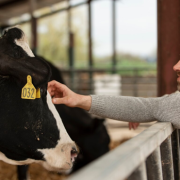When it comes to bodybuilding, vitamin B12, also referred to as Cobalamin, cannot be overlooked. Its functions are multifaceted, but the ones that hold significance for bodybuilders are its involvement in carbohydrate metabolism and the maintenance of nervous system tissue. This tissue encompasses the spinal cord and nerves, which are responsible for transmitting signals from the brain to the muscles. The stimulation of muscles through the nervous system is an essential process for muscle contraction, coordination, and growth.
Biotin plays a crucial role in amino acid metabolism and energy production. However, bodybuilders often struggle to maintain sufficient levels of this vitamin due to the presence of Avidin in raw egg whites, which inhibits the absorption of Biotin. Consequently, bodybuilders who consume raw egg whites may encounter growth issues caused by a deficiency in Biotin.
Riboflavin, also known as vitamin B2, is responsible for generating energy in three key areas: glucose metabolism, oxidation of fatty acids, and the transportation of hydrogen ions through the Krebs cycle. It is also closely linked to protein metabolism, and studies have shown that Riboflavin intake is positively correlated with lean body mass.
Vitamin A is not just important for vision, but also for muscle growth. It plays a vital role in protein synthesis and is responsible for the production of Glycogen, which is the body’s energy storage for high intensity performance. However, bodybuilders often face a challenge with vitamin A as their diets are usually low in this nutrient and strenuous physical activity can disrupt its absorption.
Vitamin E is like a shield for our cell membranes, thanks to its antioxidant properties. It’s a key player in various metabolic processes, including the rejuvenation and expansion of muscle cells.
To know more about vitamins and bodybuilding supplements of all types, continue reading













Comments